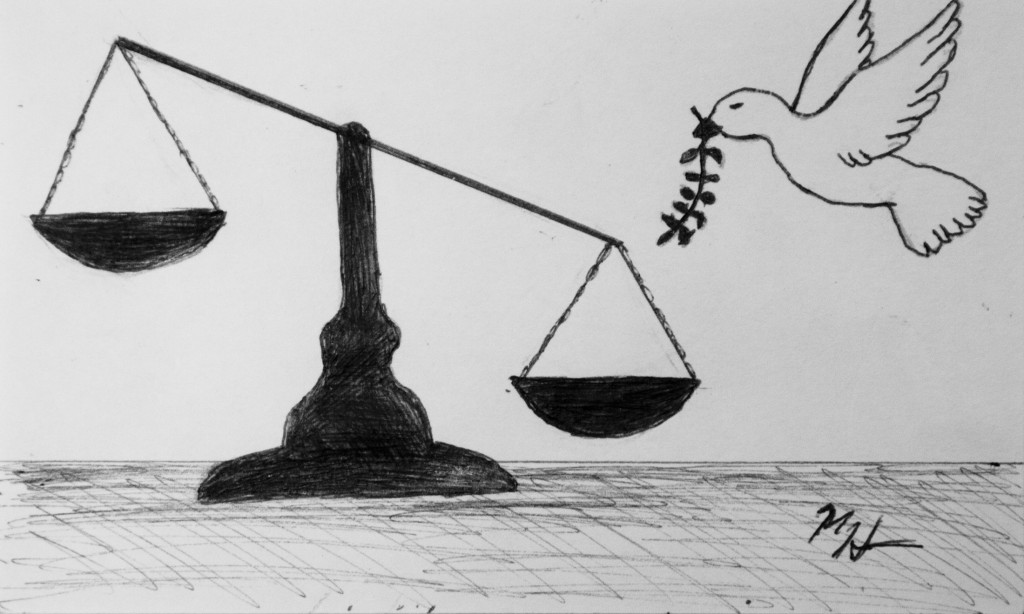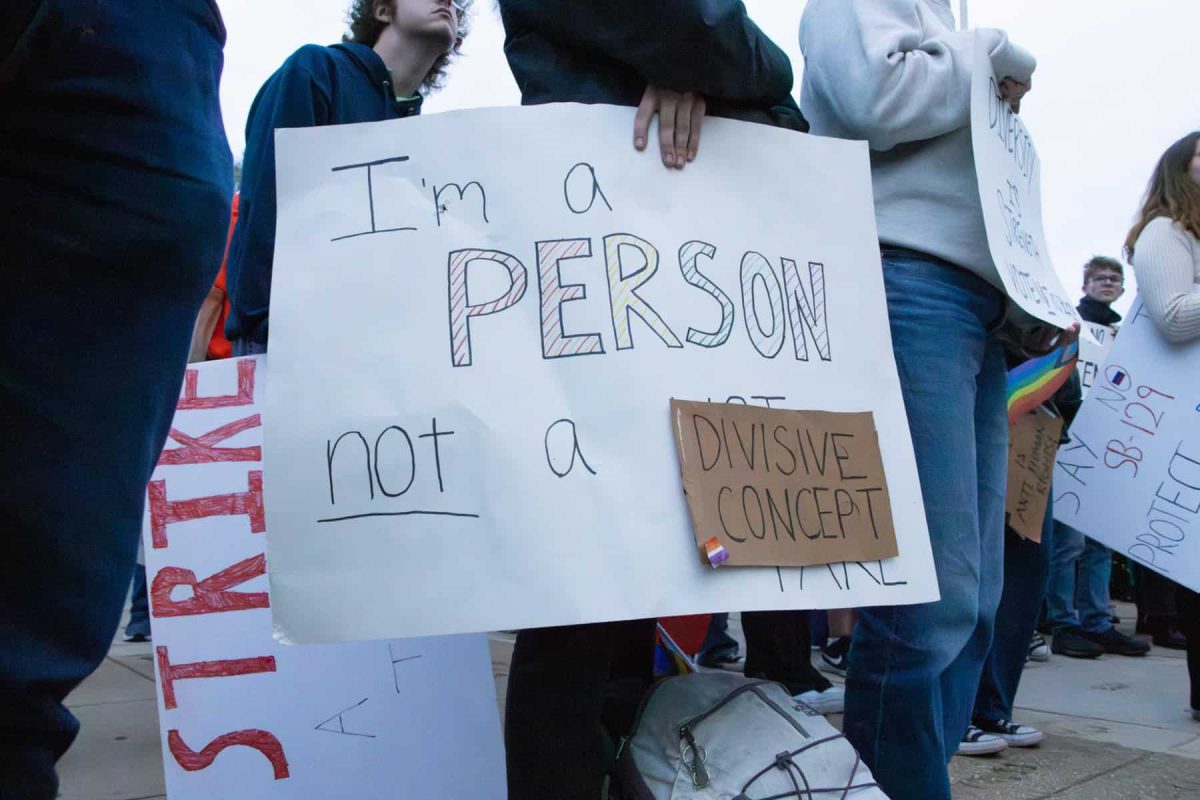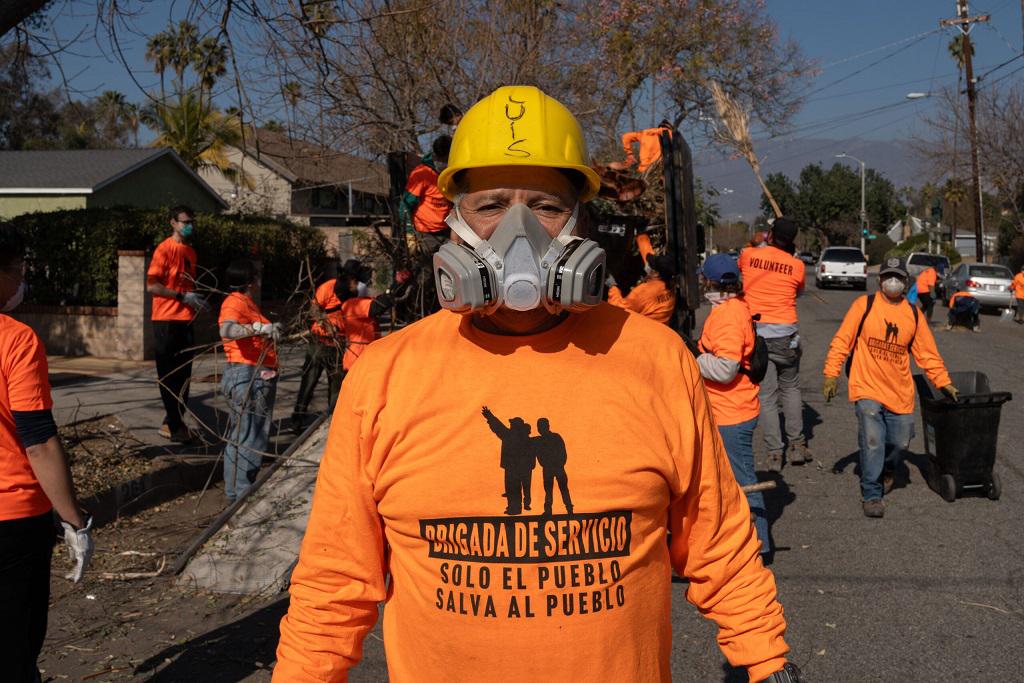
Before I respond to Dr. Kenneth Parker’s recent commentary, I think I should identify who I am. I am a Jesuit and have been at Saint Louis University for 32 years, 12 years longer than Parker. I was the first campus minister in the Law School, then the campus minister in the Medical School and have been the assistant to the dean of admission for the last 15 years. In short, I feel I have as good a perspective of the history of the University as Parker.
Secondly, I admit that I am not an academic. I have not taught in the University, I have not given presentations at national conferences, I have not written books or articles and I do not have a doctorate as most of our faculty do. Indeed, I sincerely respect and appreciate the hard work professors engage in, including Parker’s description of his workday in his recent letter to the editor of the “Post-Dispatch” in response to a previous letter regarding tenure. As a result, I cannot speak to the academic issues and concerns raised by the faculty, for example, tenure. I have taught and counseled only on the secondary school level. In short, I guess I am part of the “silent majority” the resigned chair of the department of theological studies referred to. That being said, however, I have served on many search committees both on the Frost and the Medical Center campus, so I feel that I am aware of many academic issues.
I realize I may be jeopardizing my relationships with some faculty members whom I consider friends, especially those who disagree with me, as well as with some students and even the editors of The University News who seem very anti-administration. In fact, I envision strident reactions to my view. I am saddened if this turns out to be the case.
As for Parker’s editorial I was shocked by his comments. The reason is that I have heard him speak on three different occasions, specifically about the excellent ministry to prisoners and also his support for and promotion of such programs as the Father Heithaus lecture. I was truly impressed by his description of the prison program and even thanked him personally. So when I read his commentary I thought, “Is this the same man who initiated the ministry-to-prisoners program? Is this the same man who supported and spoke to the Student Government Association about the Heithaus lecture? Is this the same man who together with several other faculty members authored an article a few months ago in The University News expressing hope and reconciliation regarding the future of the situation at SLU?” Well, apparently it is, and I am truly saddened.
I have been the Student Government Association’s chaplain for a number of years. As a result, I prepare prayers and on rare occasions offer brief reflections at the opening of the meetings that address issues the senators will be discussing. Because of the no-confidence controversy, I recently spoke about forgiveness indicating that forgiveness is a main component of almost all major religions. Though I am hardly an authority on world religions, I researched and even quoted the words of Jesus on forgiveness as well as quotes from the Muslim and Hindu holy books. Initially I composed these reflections and prayer before learning that Parker was going to be present. Thus, I hesitated since I did not want him to think I was speaking to him. However, I decided to share my comments and prayer since I was addressing the senators. Well, Parker apparently felt and continues to feel that forgiveness has no relevance to the lack of confidence in the president’s leadership.
After thought and prayer, including offering Masses for healing and forgiveness on our campus, I wonder whether Parker considers himself a prophet speaking in the tradition of the biblical prophets addressing injustice. If that is the case, I am puzzled why he does not feel that justice and forgiveness go together.
I mean, isn’t that one of the goals of prison ministry, for example, to help prisoners change for the better? And isn’t it also a goal to help victims forgive the criminals who unjustly hurt their loved ones? I too have ministered to prisoners for many years and hear their desires to change. So why does Parker deny the president’s desire for change and “that his reflection leads him to see that is can’t be business as usual going forward and that he is committed to being part of the solution and to working more closely with those around our campus who say their voices are not being heard?”
Unfortunately, my feeling is that Parker’s dislike for the president is so intense that he cannot admit that change is possible. To add an additional comment, I too was present when the no confidence vote was issued by the SGA a number of years ago. In fact, I am a friend of the former SGA president who promoted the no confidence vote. Interestingly enough, I was with him this past Sunday. He now has a good job, a wife, who is both a SLU and Harvard Law grad, and four beautiful children. He never has mentioned either the no confidence vote of years ago or the current vote. You see, he has moved on with his life. Apparently, Parker has not.
My final disagreement with Parker is his claim that Jesuit superiors have remained silent about the president’s actions. He is challenging the Jesuit Provincial, a former member of the SLU faculty, and the Rector of the Jesuit community to remove the president.
This demand makes me wonder whether Parker has given serious thought about such a move. First of all, I trust that Parker is aware that the Society of Jesus does not own Saint Louis University. The Board of Trustees does. Though many of the dissenting faculty might support such a move, would it not also be possible that the American Association of University Professors would censor SLU for letting an outside group interfere in the running of the University?
I feel Professor Parker is playing the “blame game.” The Board of Trustees’ recommendations, which even the president of the Faculty Senate seems to feel are at least steps in the right direction, are not enough for Parker. Result? Blame the Board of Trustees. Since the Jesuit superiors have not publicly removed the president, blame them. Is there anyone else Parker can blame?
My conclusion is that if Parker is so unhappy with the Board of Trustees’ decision to retain the president plus their recommendations, and if he is so upset with Jesuit superiors for not removing the president, I suggest he consider seeking employment elsewhere where he can find a university administration that not only agrees with his viewpoints but allows him to share in all university decisions. Parker, though I admire your efforts to bring healing education to prisoners and have remembered you in my prayers, unfortunately, you have lost both my credibility in and respect for your opinions.












